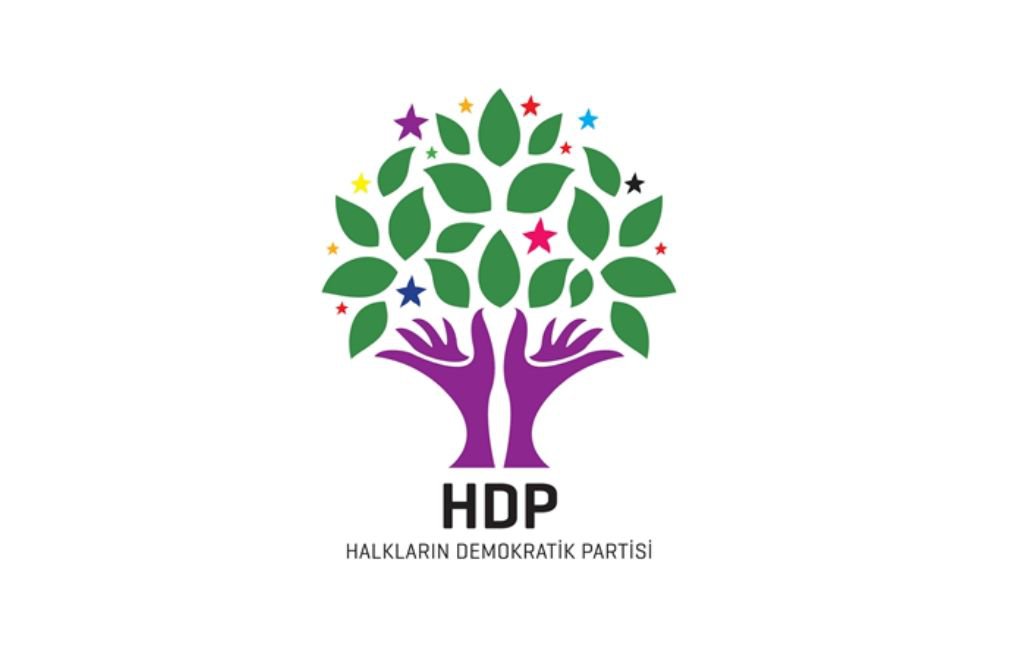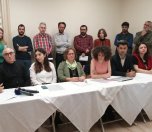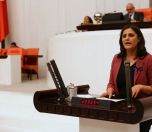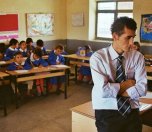* Photo: HDP Press
The Peoples' Democratic Party (HDP) has announced that the bilingual Parliamentary questions and inquiries submitted by its 22 MPs on the occasion of February 21 International Mother Language Day have been returned to the MPs by the Speaker's Office without being processed.
"While the Parliamentary questions submitted by our MPs in Turkish have been accepted, the bilingual questions submitted in Arabic, Kurmanjî, Turkish, Syriac and Zazakî have been returned by the Speaker's Office without even being processed", the party has announced.
On the occasion of February 21 International Mother Language Day, Peoples' Democratic Party (HDP) MPs submitted Parliamentary questions in Arabic, Kurdish, Turkish, Syriac and Zazaki about the culture, the right to mother language and endangered languages.
The questions were submitted by the following HDP MPs: Alican Önlü, Ayşe Sürücü, Dersim Dağ, Dilan Dirayet Taşdemir, Ebru Günay, Erdal Aydemir, Hasan Özgüneş, Hüseyin Kaçmaz, İmam Taşçıer, Meral Danış Beştaş, Muazzez Orhan, Murat Sarısaç, Nuran İmir, Nusrettin Maçin, Ömer Faruk Gergerlioğlu, Ömer Öcalan, Pero Dündar, Remziye Tosun, Şevin Coşkun, Tuma Çelik and Tülay Hatimoğulları.
Details from some of these bilingual questions were as follows:
'15 endangered languages in Turkey, says UNESCO'
HDP Mardin MPs Tuma Çelik and Ebru Günay submitted Parliamentary questions in Turkish-Syriac and Turkish-Zazaki language pairs on February 21 International Mother Language Day.
While Çelik has raised concerns that Syriac is one of the 15 endangered languages in Turkey, Günay has asked education in mother tongues and the current elective courses provided in mother languages.
'Efforts limited to Syriac community'
HDP Mardin MP Tuma Çelik has addressed his Parliamentary question to Minister of Culture and Tourism Nuri Ersoy.
The MP has submitted his Parliamentary question in Turkish-Syriac language pair. Reminding the Minister that the UNESCO Atlas of the World's Languages in Danger has listed Syriac as a "definitely endangered" language, he has also underlined that the language is still spoken in Turkey by a considerable number of people.
"Possessing an advanced literature, Syriac has a literary and cultural heritage", the MP has emphasized further.
Directing criticisms against public institutions with regards to their lack of efforts to protect the endangered languages, especially Syriac, the MP has said, "No institutional works have been conducted on the Syriac language, except for the ones carried out by the Syriac community itself."
Underlining that "our country has a cultural richness where different languages and dialects are spoken," Çelik has made a call to "prevent the disappearance of the diversity that we have."
'Do you work to prevent its disappearance?'
Within this context, HDP Mardin MP Tuma Çelik has addressed the following three questions to Minister Nuri Ersoy in both Turkish and Syriac:
- Do you have any works to prevent the disappearance of endangered Syriac language?
- In the last five years, has your Ministry published any books in Syriac?
- Do you have any works to teach Syriac?
Çelik has also requested Parliamentary inquiry
Reiterating that there are 15 endangered languages in Turkey that are categorized as "endangered" by the UNESCO Atlas of the World's Languages in Danger, including Syriac, Tuma Çelik has also requested that a Parliamentary investigation be launched "to prevent the disappearance of Syriac and to ensure its improvement in an institutional manner."
'Development of Kurdish language at risk'
Ebru Günay has also addressed a Parliamentary question in Zazaki to Minister of National Education Ziya Selçuk.
Underlining the importance of education in mother languages to pass the mother languages and cultures to next generations, the MP has indicated that "the development of Kurdish language and its transfer to the next generations are at risk due to policies of assimilation."
Ebru Günay has also emphasized, "The right to education in mother languages is the right of all children and it is a must to ensure that Kurdish is the language of education so that it can be developed, improved and used in daily language." She has also underscored that "it is a responsibility of the state to work on this issue."
'Are students prevented from choosing Kurdish?'
Within this context, HDP Mardin MP Günay has asked the following questions to Minister Selçuk:
- How many teachers of Kurdish have been appointed till now? How many of them in Kurmanjî and how many of them in Kirmanjkî?
- How many students have chosen Kurdish as an elective course till today? How many of them have chosen Kurmanjî and how many of them Kirmanjkî?
- There are allegations that school principals prevent children from choosing Kurdish as an elective course? Are these allegations true? Will you launch any investigation into this issue?
- Do you have any steps to take to ensure that preschool children will be educated in their mother languages? What are your projects for education in mother language?
- According to UNESCO, Kirmanckî (Zazakî) is an endangered language. What are your policies to prevent the disappearance of languages and to ensure their development?
About Syriac languageSyriac, also known as Syrian/Syriac Aramaic, Syro-Aramaic or Classical Syriac, is a dialect of Middle Aramaic of the Northwest Semitic languages of the Afroasiatic family that is written in the Syriac alphabet, a derivation of the Aramaic alphabet. Having first appeared in the early first century CE in Edessa, classical Syriac became a major literary language throughout the Middle East from the 4th to the 8th centuries. Syriac literature comprises roughly 90 percent of the extant Aramaic literature. Syriac was once spoken across much of the Near East as well as Anatolia and Eastern Arabia. Syriac originated in Mesopotamia and eventually spread west of Iraq in which it became the lingua franca of the region during the Mesopotamian Neo-Assyrian period. Syriac is spoken as the liturgical language of the Syriac Orthodox Church, as well as by some of its adherents. Syriac has been recognised as an official minority language in Iraq. It is also taught in some public schools in Iraq, the Democratic Federation of Northern Syria, Israel, Sweden, Augsburg (Germany) and Kerala (India). About Zazaki / Zaza languageZaza, also called Zazaki, Kirmanjki, is an Indo-European language spoken primarily in Eastern Turkey by the Zazas. The language is a part of the northwestern group of the Iranian section of the Indo-European family and belongs to the Zaza–Gorani. According to Ethnologue, the number of speakers is between 1.5 and 2.5 million (including all dialects). According to Nevins, the number of Zaza speakers is between 2 and 4 million. * Source: Wikipedia |
(SD)







